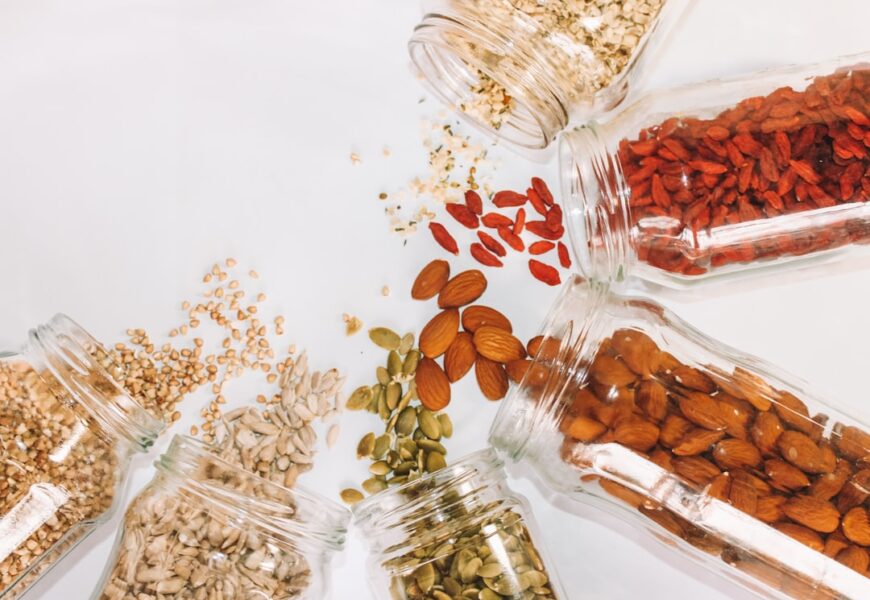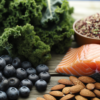A Beginner’s Guide to Superfoods and Their Health Benefits
Introduction
Welcome to your journey into the world of superfoods! If you’ve been looking to enhance your diet and boost your health naturally, you’ve come to the right place. Superfoods are not just a trendy concept; they are power-packed with nutrients such as antioxidants, vitamins, and minerals that your body needs to thrive. Whether you’re a seasoned health enthusiast or new to the idea of incorporating more nutrient-dense foods into your meals, this beginner’s guide will provide you with all the information you need to start making smart, healthful choices. Ready to discover which superfoods can help you feel more energetic and vibrant? Let’s dive in!
What are Superfoods?

Definition and characteristics
Superfoods are predominantly plant-based foods, though some fish and dairy also make the list. They are renowned for being nutritionally dense and packed with vitamins, minerals, antioxidants, and other essential nutrients that can aid in prolonging life, increasing energy levels, and reducing the risk of chronic diseases. Unlike other foods, superfoods are superior in their ability to deliver multiple benefits, often containing higher quantities of necessary nutrients like omega-3 fatty acids, fiber, and protein. The unique aspect of superfoods is that they don’t possess just one singular health benefit but offer multiple therapeutic properties, making them pivotal for overall health and well-being.
Importance of superfoods in a healthy diet
Integrating superfoods into your diet can boost heart health, improve gastrointestinal health, support immune function, and enhance longevity. Because of their potent antioxidant properties, superfoods can help combat oxidative stress and inflammation, both of which are linked to a variety of chronic diseases. Eating a range of superfoods also ensures that one is consuming a variety of nutrients, which can help to correct nutrient deficiencies and promote a balanced diet. Particularly for those transitioning to a healthier lifestyle or battling with specific health issues, superfoods can provide essential nutrients that might otherwise be lacking in a standard diet.
Top Superfoods for Beginners
Blueberries
Blueberries are often hailed as a powerhouse of antioxidants, particularly rich in anthocyanins that help fight the body’s free radicals. The benefits of regularly consuming blueberries include enhanced brain health, improved heart health, and cancer prevention. Their high fiber content also aids in digestion and weight management. For beginners, incorporating blueberries into one’s diet is as simple as adding them to a morning smoothie or oatmeal, ensuring a flavorful and nutrient-rich start to the day.
Spinach
This leafy green is loaded with vitamins A, C, K, and several B vitamins, along with essential minerals such as manganese, iron, and magnesium. Spinach is particularly beneficial for maintaining good skin, hair, and bone health. Additionally, it offers protective benefits against heart disease due to its high levels of nitrates, which help moderate blood pressure levels and decrease heart disease risk. Spinach can be easily added to a variety of dishes, from smoothies to omelets, or simply sauteed as a healthy side dish.
Quinoa
Quinoa is a great superfood for beginners due to its high protein content, including all nine essential amino acids that our bodies cannot synthesize on their own. This makes it a rare plant-based complete protein source, ideal for vegetarians and vegans. Quinoa is also high in fiber, magnesium, B vitamins, iron, potassium, calcium, phosphorus, and vitamin E. Its benefits include improved metabolic health, reduced diabetes risk, and better cardiovascular health. Quinoa can serve as a base for salads, be stirred into soups, or used as a substitute for rice in many recipes.
Chia seeds
Packed with omega-3 fatty acids, fiber, and calcium, chia seeds are excellent for boosting heart health, reducing inflammation, and enhancing digestive health. They also help in stabilizing blood sugar levels and maintaining a healthy weight. Chia seeds are versatile enough to be incorporated into any meal—sprinkled over breakfast bowls, blended into smoothies, or mixed into yogurt or puddings.
Kale
Kale is celebrated for its very high content of vitamins C and K, along with numerous other nutrients that support skeletal health and vision, and help to lower cholesterol levels. The fiber content of kale also assists in digestion and detoxification. Its robust flavor and nutritional profile make kale a popular choice for health-conscious eaters looking to maximize their nutrient intake. Kale can be enjoyed in salads, blended into smoothie, or baked into chips.
Health Benefits of Superfoods
Antioxidant properties
Superfoods are renowned for their high antioxidant content, which plays a crucial role in combating free radicals—unstable molecules that can cause oxidative stress and damage cells. Antioxidants like vitamins C and E, as well as flavonoids and carotenoids, are abundant in many superfoods such as berries, leafy greens, and nuts. By neutralizing free radicals, antioxidants help protect the body from various diseases, including cancer and heart disease, while also promoting overall health and longevity.
Rich in vitamins and minerals
Incorporating superfoods into your diet ensures that you’re receiving a significant influx of essential vitamins and minerals. These nutrients are vital for maintaining health and preventing deficiencies that can lead to serious health issues. For instance, superfoods like kale and spinach are loaded with vitamin K, essential for blood clotting and bone health. Similarly, sweet potatoes and carrots are excellent sources of vitamin A, which is important for skin health and vision. Including a variety of superfoods in your meals can help you meet your daily nutritional needs more naturally and effectively.
Potential to reduce the risk of chronic diseases
Eating superfoods may also reduce the risk of developing chronic diseases thanks to their nutrient-dense profiles. Foods like blueberries, which are high in dietary fiber and antioxidants, can aid in maintaining heart health and reducing the risk of diabetes. Omega-3 fatty acids, found in abundance in fish like salmon and in flaxseeds, are known to reduce inflammation, lower blood pressure, and decrease heart disease risk factors. The regular inclusion of these powerful foods in your diet can lead to significant health improvements and a lower risk of chronic health issues.
How to Incorporate Superfoods into Your Diet
Simple recipes and meal ideas
Introducing superfoods into your diet doesn’t require a complete overhaul—simple incorporations into your favorite recipes can lead to significant health benefits. Begin with blending a handful of spinach or kale into your morning smoothie for a nutrient boost without a strong taste. You can also top your salads with chia seeds or hemp seeds for a crunchy texture and a healthy dose of omega-3 fatty acids. For a heartier option, substitute quinoa or brown rice for your usual grains to add protein, fiber, and various micronutrients to your meals.
Tips for shopping and storing superfoods
When shopping for superfoods, opt for organic whenever possible to avoid pesticides and chemicals. Buying in bulk can also be cost-effective, especially for dried superfoods like nuts, seeds, and whole grains. To maximize freshness and nutritional value, proper storage is key. Most perishable superfoods like berries and leafy vegetables should be stored in the refrigerator. Non-perishable items like nuts and seeds keep best in airtight containers in a cool, dark place to prevent rancidity due to exposure to heat, light, and air.
Making superfoods a part of your daily routine
Consistency is essential when incorporating superfoods into your diet. Start by setting realistic goals, such as including at least one superfood in each meal. Morning routines can benefit hugely from a superfood-enriched breakfast, setting a positive tone for nutrient intake for the day ahead. Snacking on nuts or dried fruits can also be a great way to include superfoods in your daily eating habits. Over time, these small but significant adjustments become habits, paving the way for a healthier lifestyle sustained by nutrient-rich superfoods. Such consistent eating patterns can greatly enhance overall health and wellbeing.
Superfoods Misconceptions

Debunking Common Myths
Superfoods often come with a halo of being magical health bullets, capable of single-handedly fending off diseases and optimizing your health. However, it’s essential to address some common misconceptions to utilize them effectively in your diet. First, no superfood can counterbalance an overall poor diet or unhealthy lifestyle. Incorporating superfoods is beneficial, but they are most effective when consumed as part of a balanced diet. Secondly, superfoods are not immediate cures or remedies. The benefits of superfoods, like improved heart health or enhanced immune system, accumulate over time and with consistent consumption.
Clarifying Serving Sizes and Frequency
Understanding the appropriate serving sizes and consumption frequency of superfoods can maximize their health benefits without overdoing it. Here’s a simple guide to get you started:
– Berries (e.g., blueberries, raspberries): A standard serving is about one cup. These can be eaten daily, ideally fresh, but frozen berries retain most of their nutrients and are a great alternative.
– Kale and other leafy greens: One to two cups per day is recommended. Kale can be enjoyed in salads, smoothies, or lightly sautéed.
– Chia seeds: A daily serving of 1-2 tablespoons is sufficient. They can be sprinkled over salads, blended into smoothies, or soaked to make chia pudding.
– Quinoa: Half a cup of cooked quinoa per serving is ideal, suitable for adding to meals a few times a week.
Each superfruit, grain, or greens pack a punch in their own unique way, but balance and moderation are key. Remember, diversity in your diet helps ensure you receive a wide range of nutrients necessary for good health.
Conclusion
As we wrap up our exploration of superfoods, it’s clear that incorporating these nutrient-dense foods into your diet can significantly benefit your health. Whether you’re looking to boost your energy, improve your immune function, or just maintain overall wellness, superfoods offer a variety of advantages. Remember, the key is to incorporate these foods into a balanced diet. Start with small portions and increase as you become more accustomed to their flavors and benefits. Including superfoods is not just about adding them to your plate; it’s about enhancing your health and enjoying your life to the fullest. So why not give them a try and see how you feel? Happy eating!










